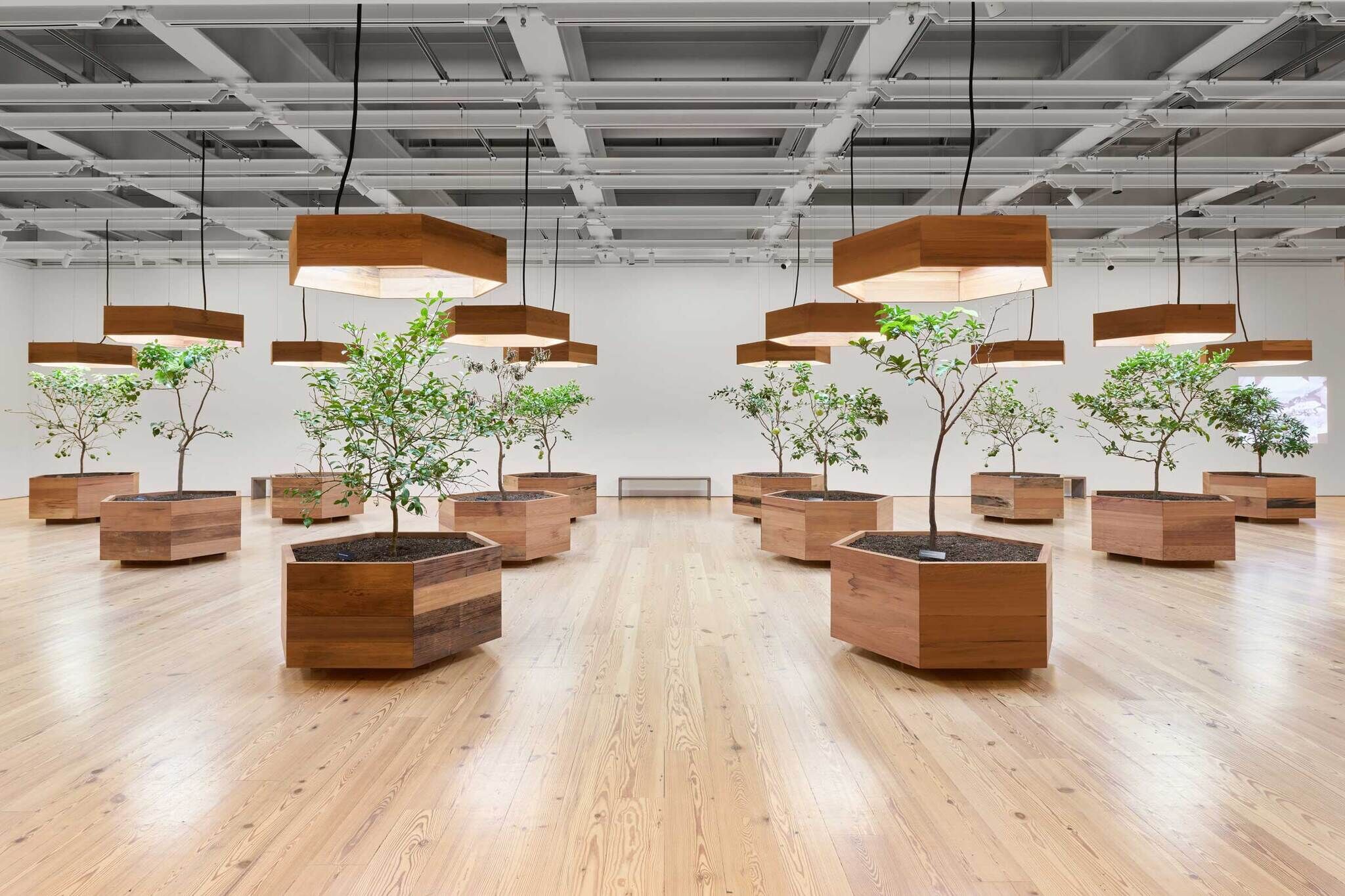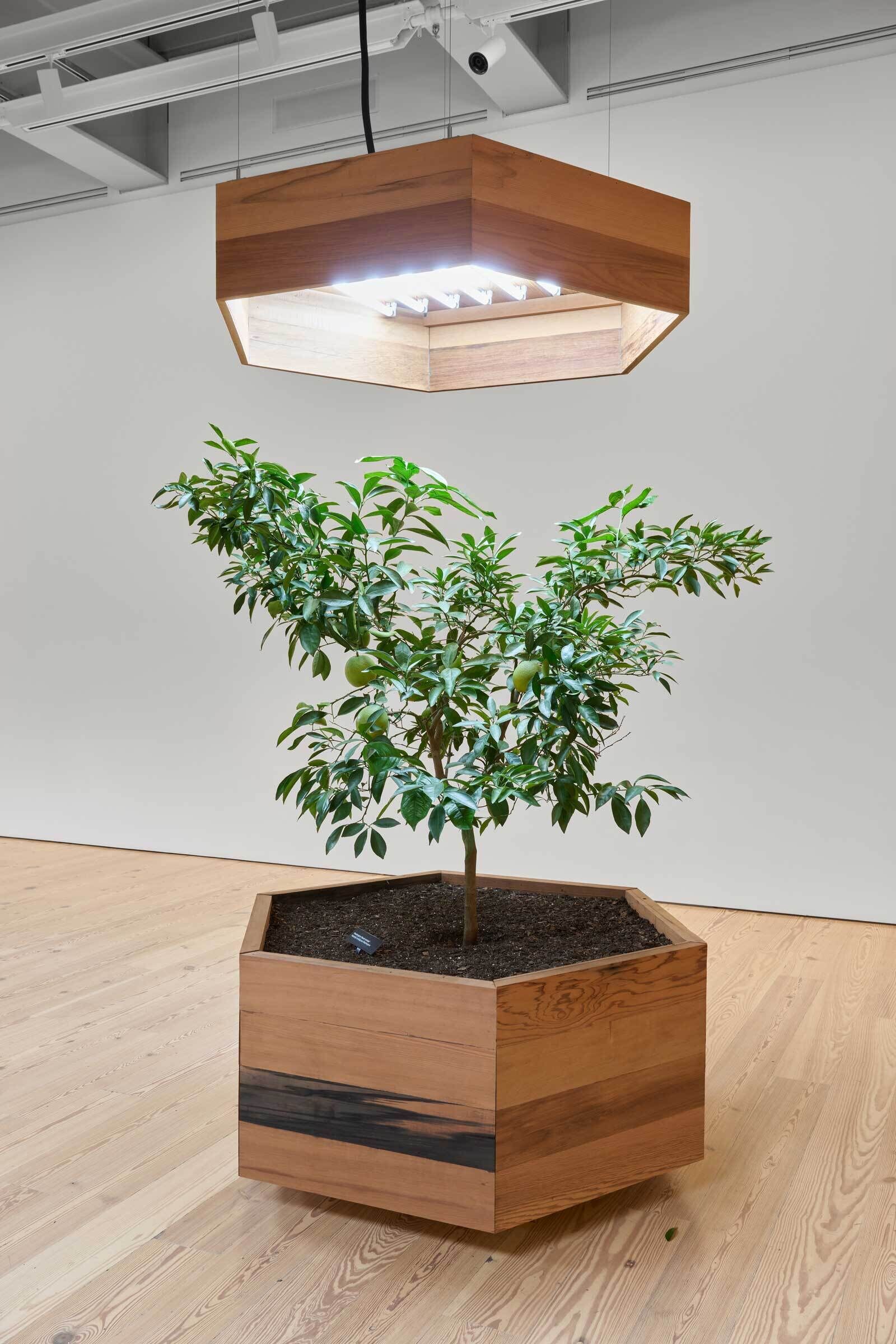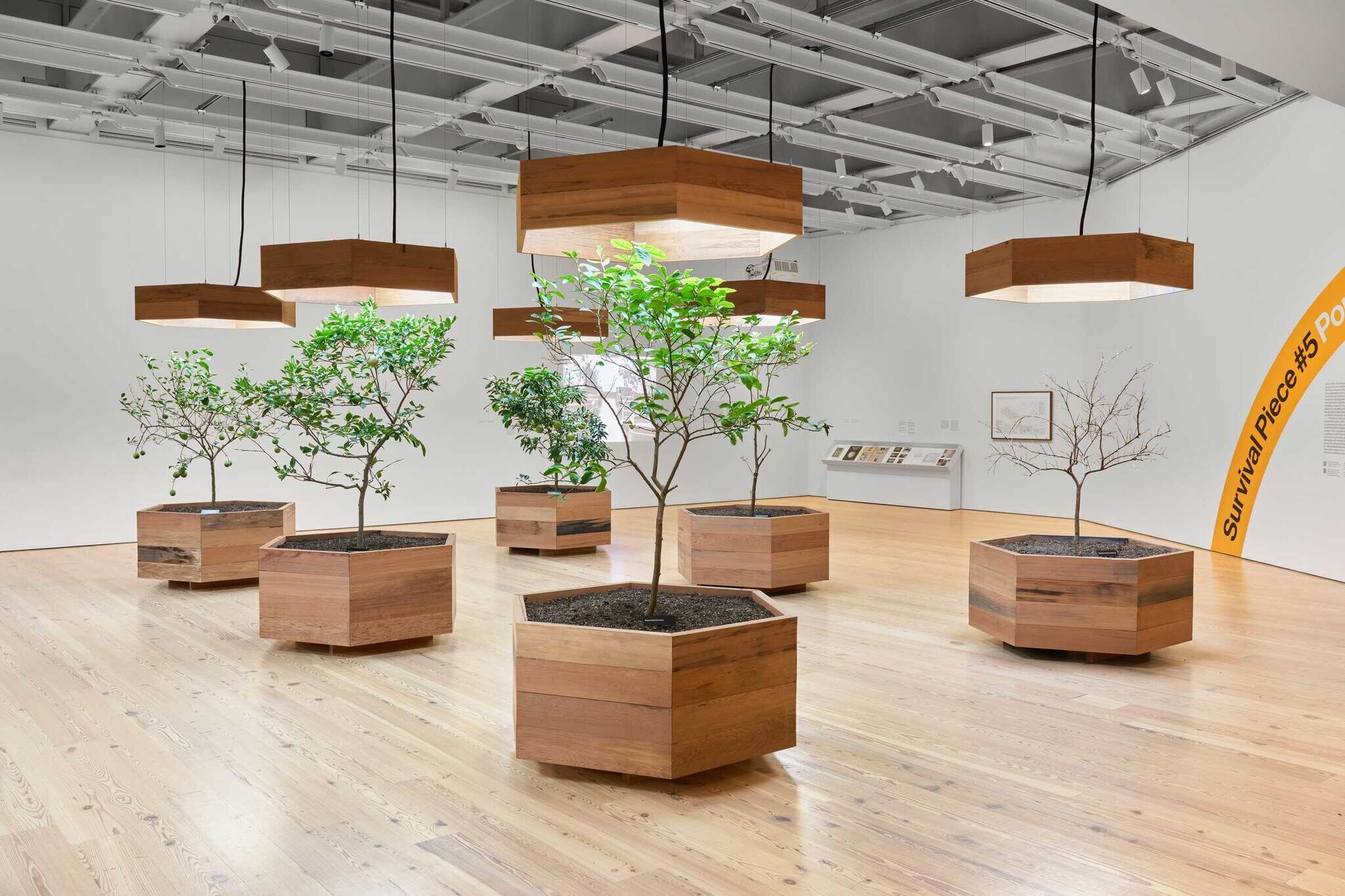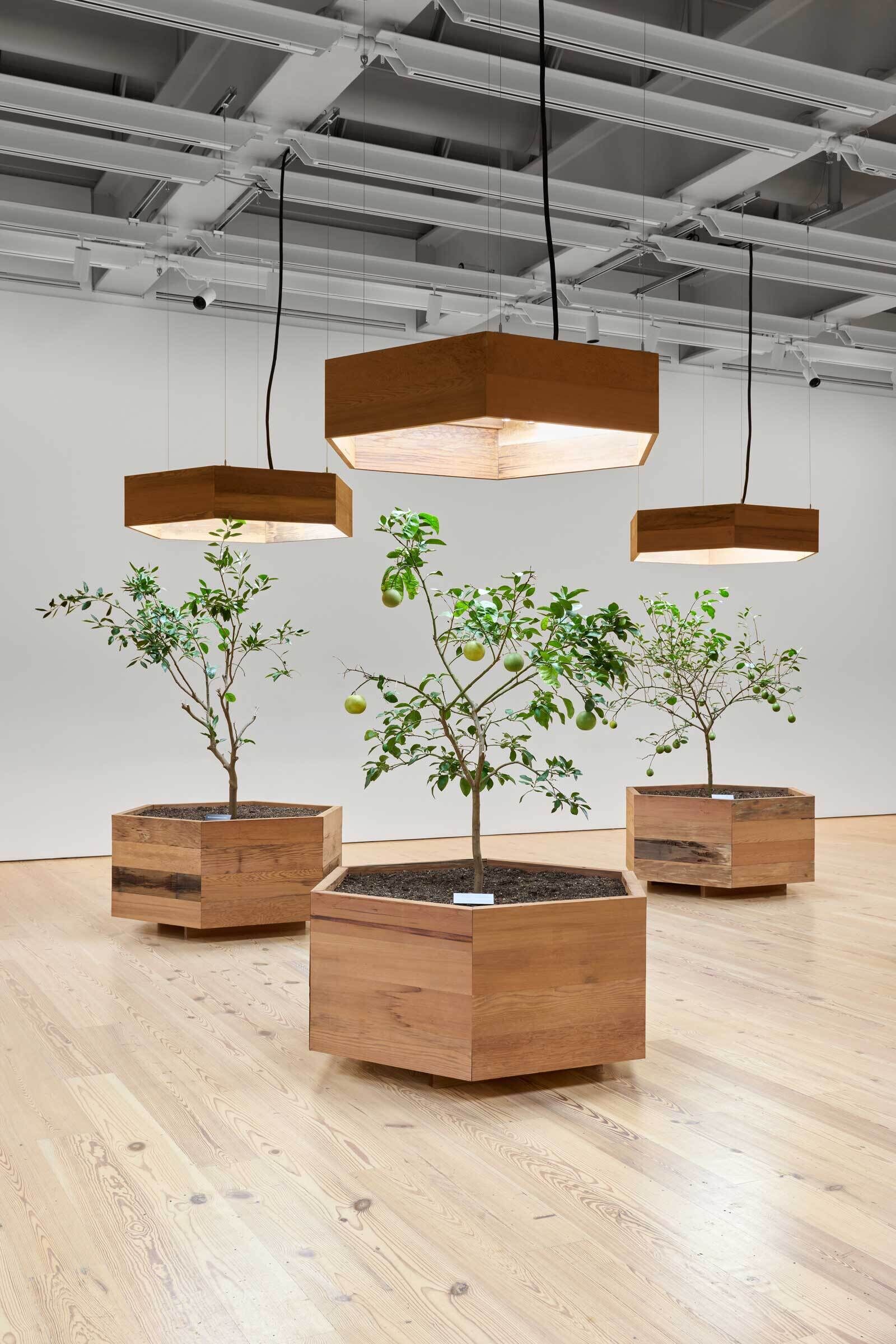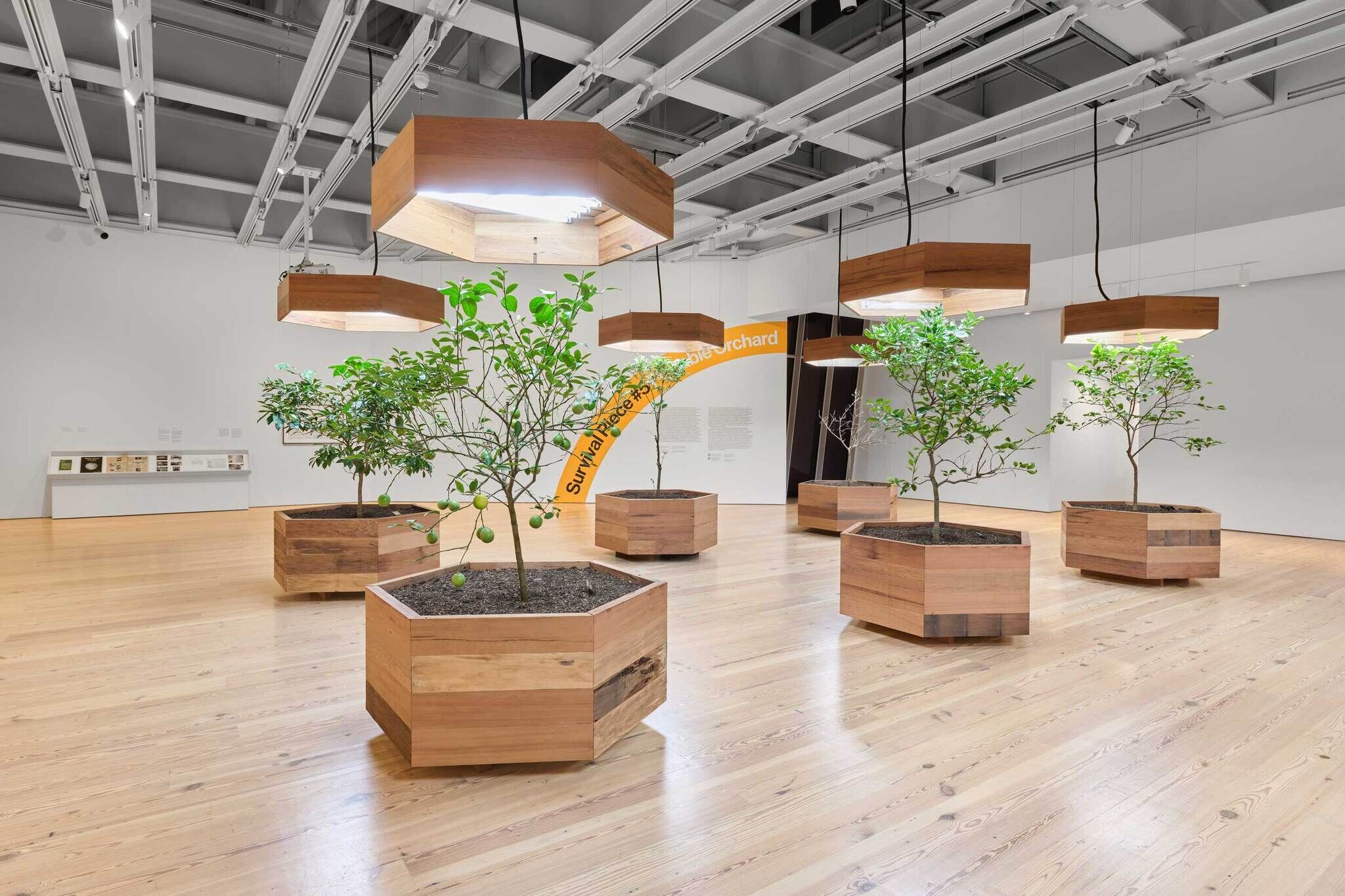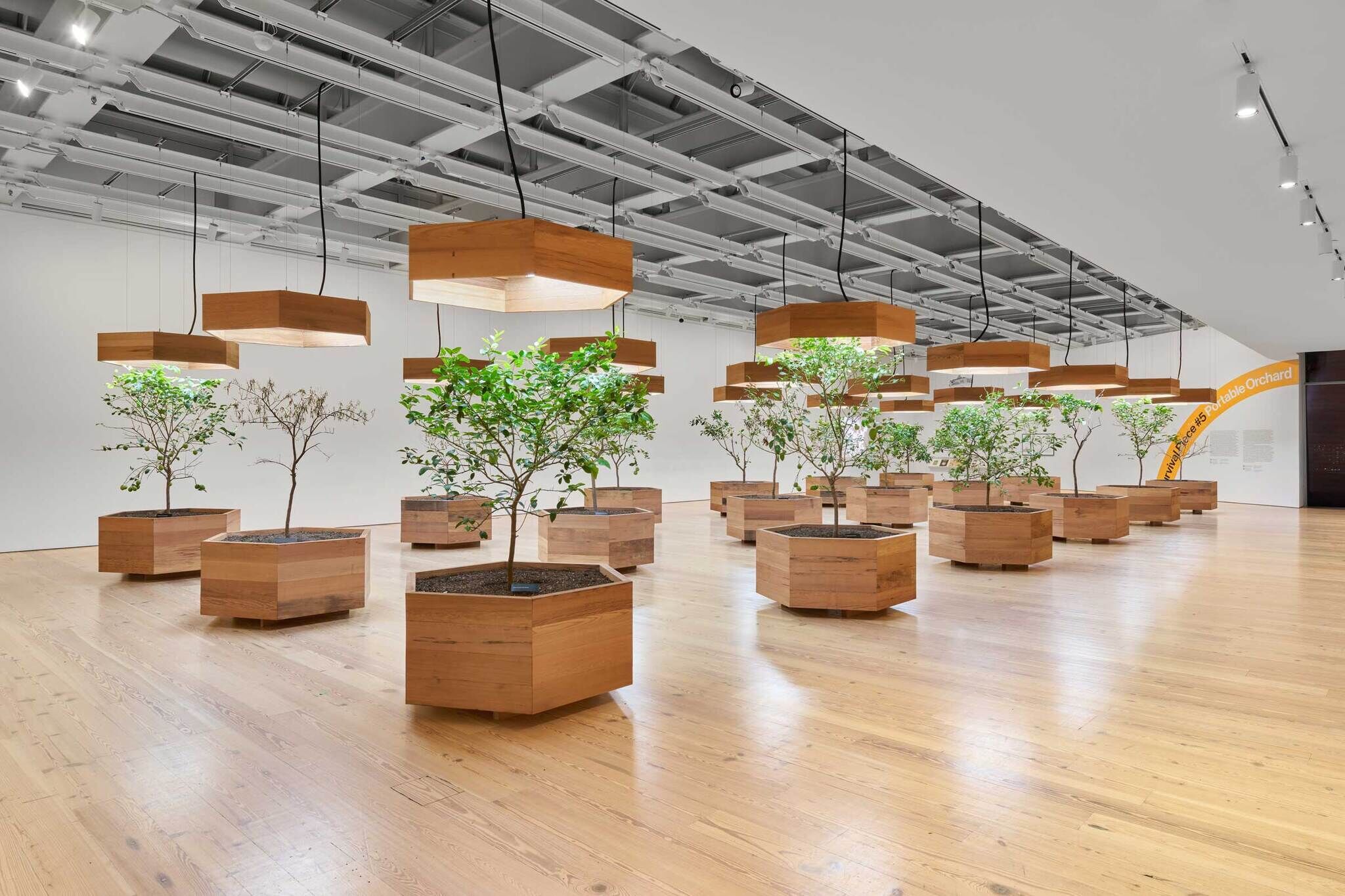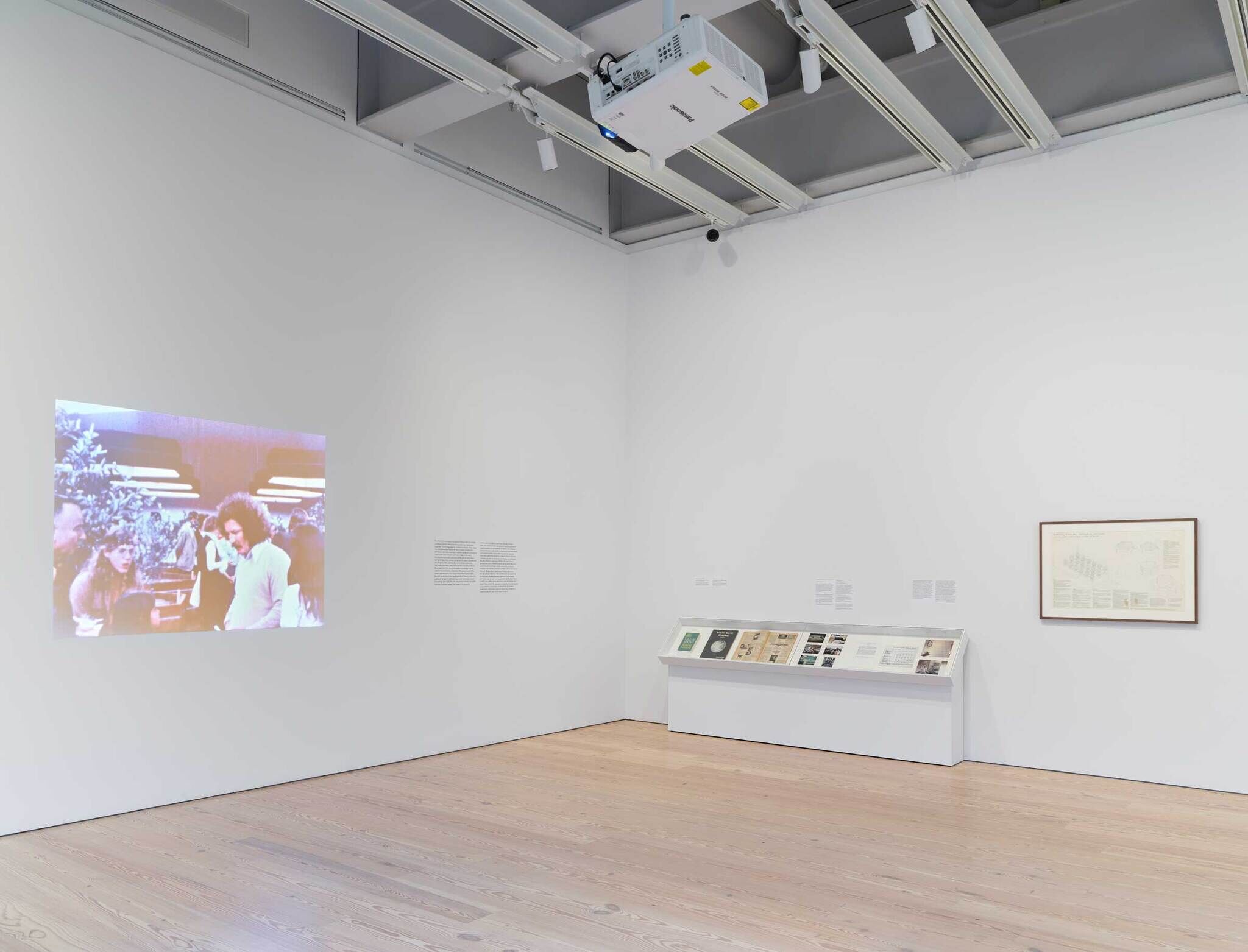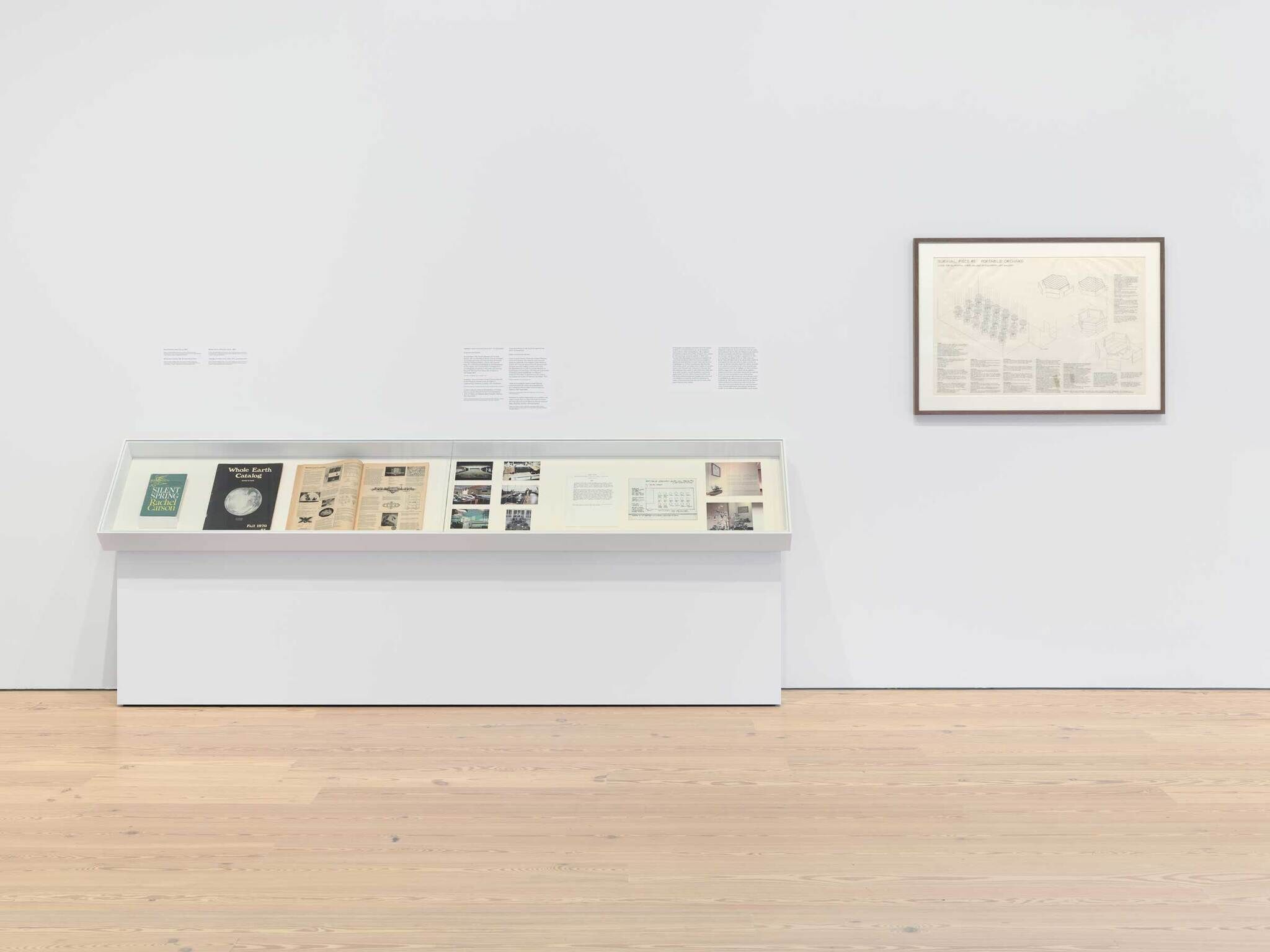Survival Piece #5: Portable Orchard
June 29, 2024–Jan 5, 2025
Survival Piece #5: Portable Orchard
Survival Piece #5: Portable Orchard marks the first standalone museum presentation of the fully realized indoor citrus grove conceived and designed in 1972 by artists Helen Mayer Harrison (1927–2018) and Newton Harrison (1932–2022). This project explores the need for a productive and sustainable food system in an imagined future where natural farming practices are obsolete and cannot be taken for granted. Stretching across the Museum’s eighth-floor gallery, this installation of eighteen live citrus trees rooted in self-contained planters with individual lighting systems reflects a survivalist alternative in the face of environmental decline.
The Harrisons began their decades-long collaboration in the early 1970s, inspired by emerging environmentalist movements and a growing social awareness of the planet’s vulnerable ecosystems. They brought distinct backgrounds in education and sculpture to their shared creative practice and developed an approach to artmaking that was grounded in cross-disciplinary research and yielded projects that served simultaneously as works of art and calls to action. “To survive as a species,” Helen Harrison reflected, “we are going to have to learn how to grow our own food and take care of ourselves at one point or another. So we started looking at what that means.” Portable Orchard is one of seven Survival Pieces developed by the Harrisons in the early 1970s, each of which proposes an alternative to an existing food production system—from a hog pasture to a shrimp farm. The Harrisons planned for future implementation of these projects by making detailed instruction drawings; the Museum’s recent acquisition of one such drawing was the impetus for this presentation and is on view in the galleries, along with additional archival materials. Portable Orchard reveals the prescient quality of the Harrisons’ research into food sustainability as well as the successes and failures of artificial systems built to sustain life—issues that are even more relevant today than they were fifty years ago when the project was first conceived.
Survival Piece #5: Portable Orchard is organized by Kim Conaty, Nancy and Steve Crown Family Chief Curator, with Roxanne Smith, Senior Curatorial Assistant.
Generous support for Survival Piece #5: Portable Orchard is provided by Judy Hart Angelo and The Brown Foundation, Inc., of Houston.
Major support is provided by the Achilles Memorial Fund and the Helen Frankenthaler Foundation.
Pieza de supervivencia #5: Huerto Portátil es la primera presentación museística autónoma del huerto de cítricos en interiores concebido y diseñado en 1972 por los artistas Helen Mayer Harrison (1927-2018) y Newton Harrison (1932-2022). Este proyecto explora la necesidad de diseñar un sistema productivo alimentario y sostenible en un futuro imaginario, donde las prácticas de cultivo tradicionales queden obsoletas y no puedan darse por sentadas. Extendiéndose a través de las galerías del octavo piso del museo, esta instalación de dieciocho árboles de cítricos vivos y plantados en jardineras independientes, con sistemas de iluminación individuales, reflejan una alternativa de supervivencia ante el declive medioambiental.
Los Harrison comenzaron su colaboración de varias décadas a principios de los años setenta, inspirados por el movimiento ambientalista emergente y por la creciente conciencia social sobre la vulnerabilidad de los ecosistemas del planeta. Cada uno aportó su experiencia en los ámbitos de la educación y la escultura a su práctica creativa compartida y desarrollaron un enfoque creativo basado en la investigación interdisciplinaria y la producción de proyectos que sirvieran simultáneamente como obras de arte y reivindicaciones activistas. “Para sobrevivir como especie”, reflexiona Helen Harrison, “tarde o temprano tendremos que aprender cómo cultivar nuestros propios alimentos y cuidarnos a nosotros mismos. Por eso comenzamos a explorar lo que eso significa”. Huerto Portátil es una de las siete Piezas de supervivencia desarrolladas por los Harrison a principios de los años setenta, cada una de las cuales propone una alternativa a un sistema de producción alimentaria existente, desde pasto para cerdos hasta granjas de camarones. Los Harrison planearon implementaciones futuras de estos proyectos realizando dibujos detallados a modo de instrucciones. La adquisición reciente por parte del Museo de uno de esos dibujos fue lo que dio ímpetu a esta muestra y está expuesto en la galería, junto con material de archivo adicional. Huerto Portátil revela la faceta profética de la investigación de los Harrison sobre sostenibilidad alimentaria, al igual que los éxitos y fracasos de los sistemas artificiales creados para sustentar la vida, cuestiones que son aún más relevantes hoy que hace cincuenta años, cuando el proyecto fue concebido inicialmente.
Pieza de supervivencia #5: Huerto Portátil ha sido organizada por Kim Conaty, Nancy and Steve Crown Family Chief Curator, con Roxanne Smith, Asistente curatorial sénior.
Events
View all-
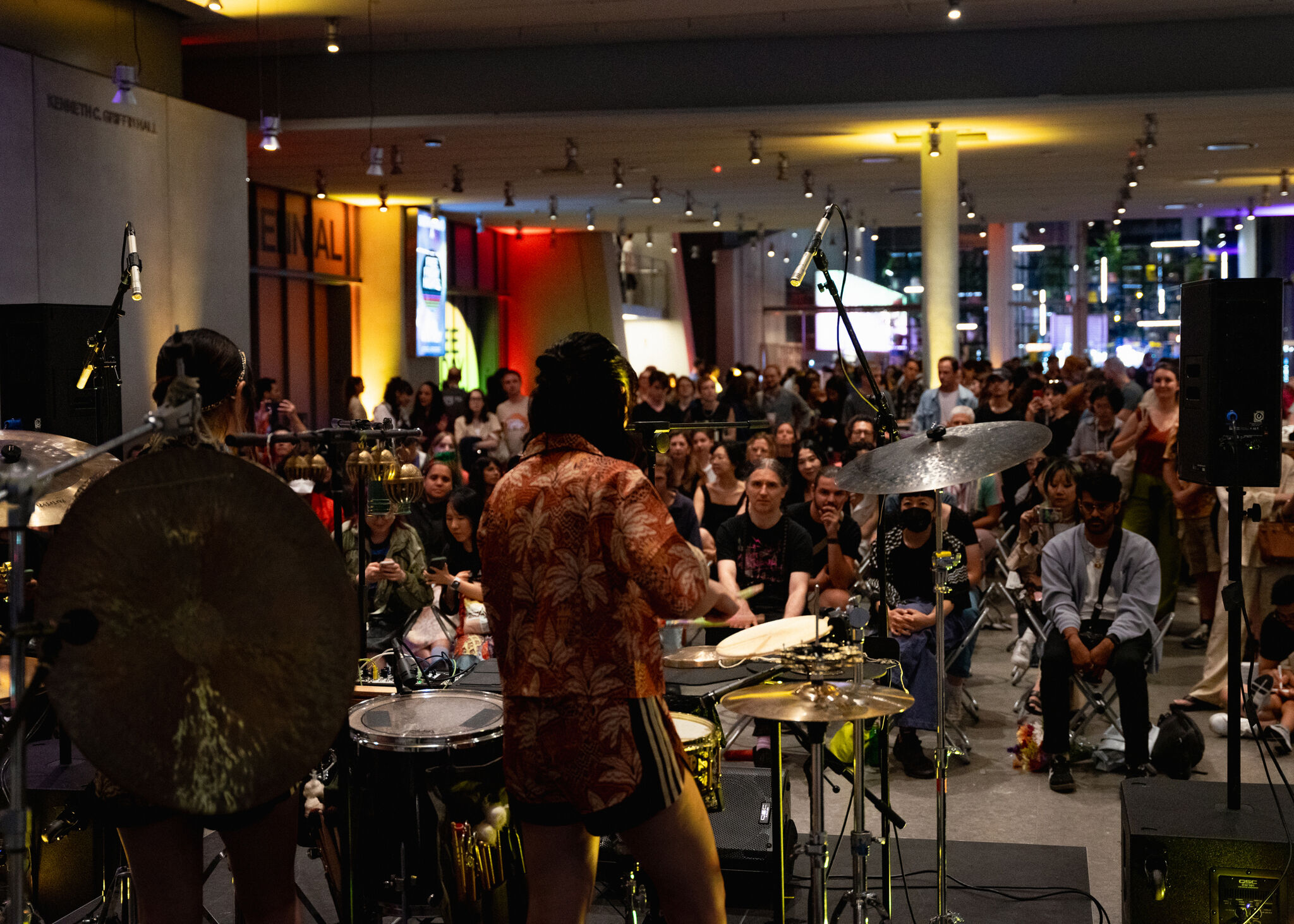
Music by Public Records
Friday, January 10, 2025
5–10 pm -
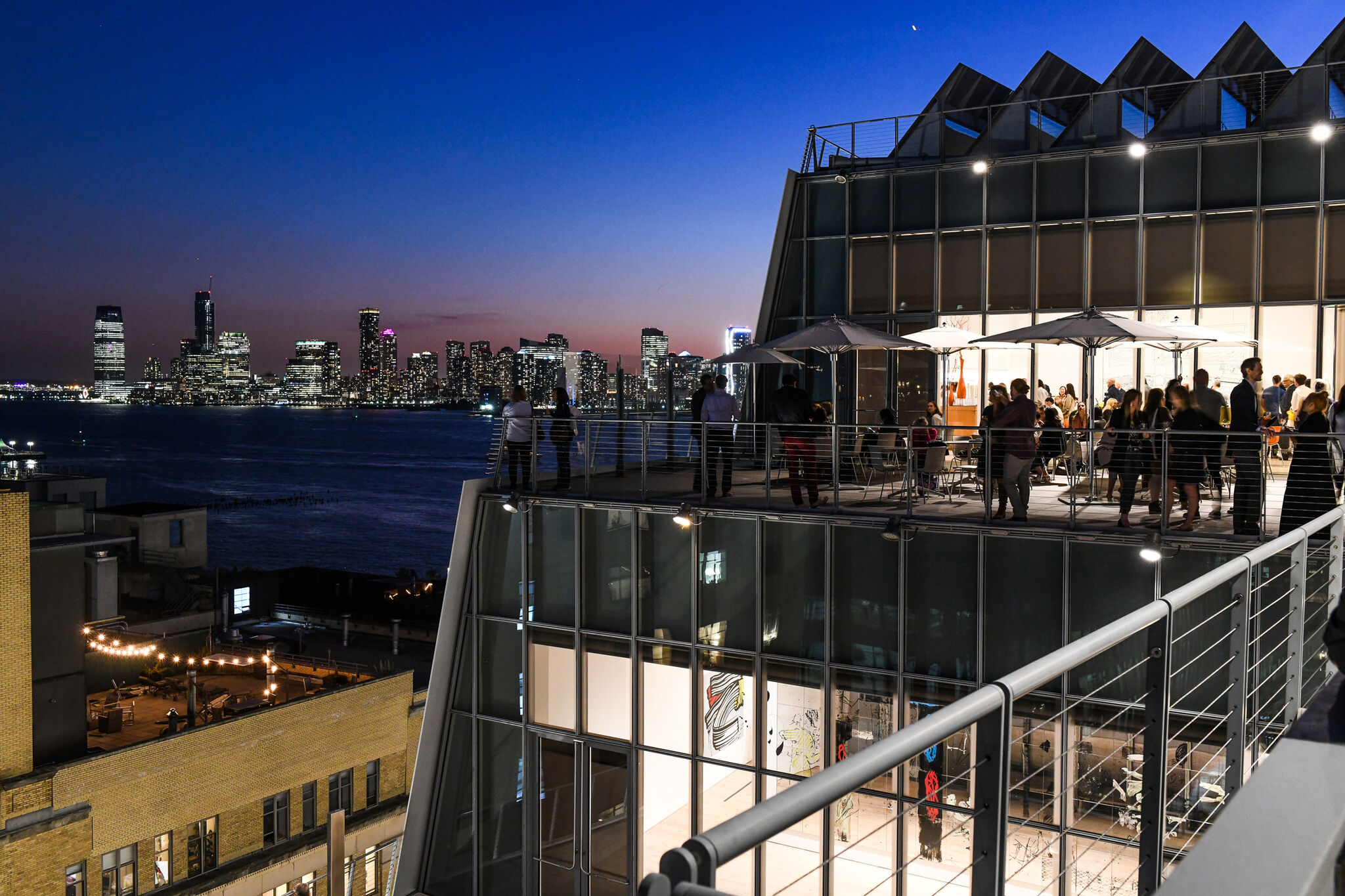
Member Night
Monday, December 9, 2024
7:30–10 pm -
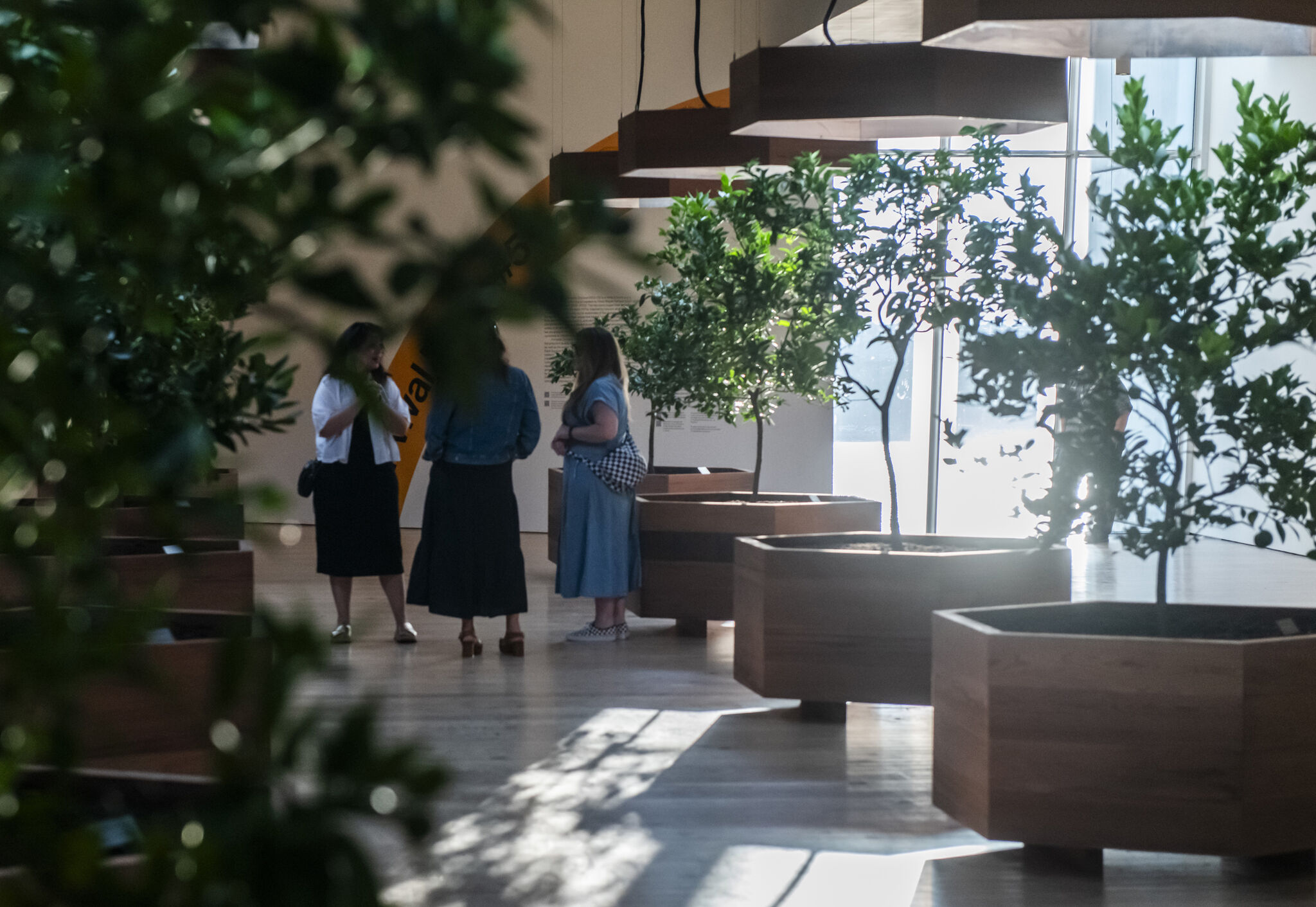
Windows to the World: Landscape, Architecture, and Environmentalism at the Whitney
Thursday, December 5, 2024
6 pm -
.jpg)
Open Studio for Teens x GrowNYC: Thriving Instead of Surviving
Friday, November 8, 2024
4 pm

